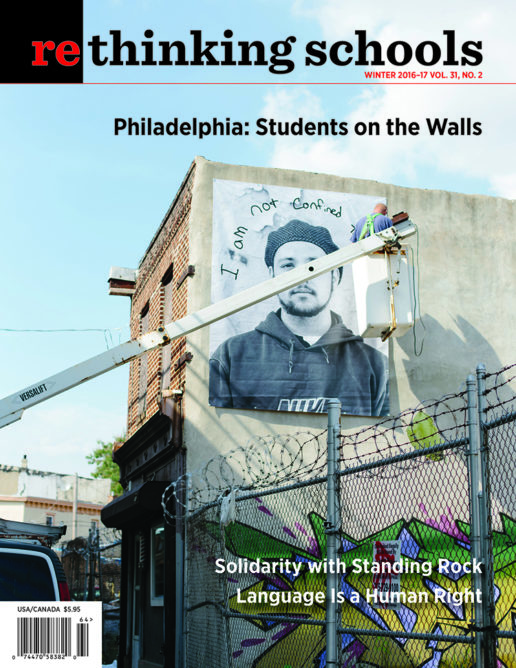Preview of Article:
Language Is a Human Right
An interview with veteran activist Debbie Wei on language education in the Asian American community
In addition to her many years teaching English language learners and as a curriculum specialist, Debbie Wei is a founding member of Asian Americans United and the founding principal of Folk Arts-Cultural Treasures Charter School in Philadelphia. She is currently elementary school director at Crossroads School for Arts & Sciences in Santa Monica, California.
Grace Cornell Gonzales: Let’s start by talking about your background as an educator.
Debbie Wei: I never envisioned myself as a teacher because I didn’t have great school experiences. I fell into teaching by accident. I wanted to be a community organizer. In Philadelphia’s Chinatown in the late 1970s, a lot of people were immigrants from Hong Kong and they spoke Cantonese. So I got a college fellowship to go live in Hong Kong for two years to learn Cantonese.
But this was right after the Vietnam War. When I returned to Philadelphia, there were many refugees from Vietnam, from Laos, from Cambodia. There were also some Haitians and Cubans. There was no longer a dominant language among immigrants in the communities where I was working and living, and I didn’t speak any of their languages. But I could communicate with the kids because they were going to school and acquiring English. I thought, “Well, if this is the group that I’m going to be working with to try to change conditions in the community, why don’t I become a teacher?”
I got certified through a program where you could work in a school and get your certification at the same time. I became an ESL (English as a second language) teacher and I fell in love with teaching. A few years later, the School District of Philadelphia published a pretty horrific diversity handbook. It included statements like “Puerto Ricans like to eat tacos.” There was already an African American studies department within the district, so the Latina/o and Asian communities organized to demand that the district hire a multicultural specialist for each of these two constituencies. Many community members asked me to apply for that position. I became a curriculum specialist in multicultural studies for the next 13 years.
I was still organizing for educational justice during that time and working with an organization called Asian Americans United. We talked about how to make schools immigrant-friendly, and we decided after many years that we needed to create a model school. Starting the charter process was not an easy decision because politically we were concerned about the role of charter schools in public education. However, after a multiyear decision-making process, we decided to go ahead and start Folk Arts-Cultural Treasures Charter School (FACTS). I was the founding principal. I held that position for five years and then I stepped aside, knowing that I’d still be around if they needed me.

